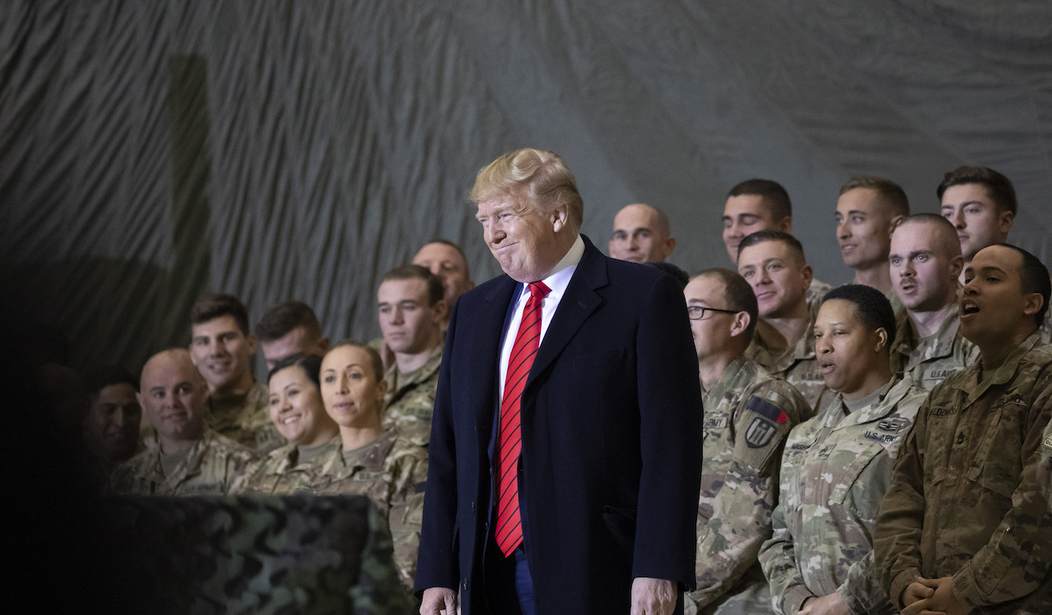The Trump administration is reportedly considering withdrawing the approximately 700 U.S. troops in Somalia. Following a years-long trend, the push-back from Washington was as quick as it was predictable. For Joe Biden to deflect the same suffocating pressure, he must vanquish reflexive submission to proponents of forever-war and chart a new path that serves American interests.
Then-Candidate Trump promised in April 2016 to forge a new foreign policy that elevated diplomacy and reserved the exercise of military power only to those occasions when it was “absolutely necessary.” Trump does deserve some credit for not starting any new wars. But to his chagrin, Trump discovered that while it's easy for the U.S. to start a war, it is remarkably difficult to end one.
Trump’s position entering office in January 2017 was that the Afghan war was pointless, a perpetual loss, and needed to end. Yet a host of his top aides talked him out of ending the war then, and instead sent more troops there. When announcing his troop increase to Afghanistan in August 2017, Trump shyly conceded decisions, “are much different when you sit behind the desk of the Oval Office.” That pressure from his most senior foreign policy and military advisors would only get worse as time passed.
In March 2018 Trump said, for the first time, that U.S. troops would be withdrawing from Syria, “like, very soon.” Just weeks later, then-Secretary of Defense James Mattis seemed to contradict the president, telling reporters he wanted to leave a “strong and lasting footprint” in Syria.
In December of that year and after the U.S. and associated forces had retaken most of the territory ISIS had once held in Syria, Trump declared “we have won against ISIS” and that American troops would soon leave Syria. One month later, the New York Times reported then-National Security Advisor John Bolton began pressuring Trump not to leave, “laying out conditions for a pullout that could leave American forces there for months or even years.” Though the numbers would fluctuate over time, Trump was never successful in resisting establishment figures and the troops remain there to this day.
Recommended
In the election’s aftermath, Trump has again signaled that he is going to reduce the number of troops or withdraw entirely from Afghanistan, Iraq, and—reportedly—Somalia. Just like in all previous instances, Trump has come under enormous institutional pressure to back away from the decision.
Some have accused Trump of trying to make life difficult for Biden if and when he assumes the office. Others that “conditions had not been met,” and still others that any withdrawal would “embolden” enemies of America. Virtually all the opposition is based on the specter of fear.
This fear is that our rivals would become stronger and the threats against us greater. Fear that some presumed order would end and chaos result. What these proponents fail to recognize, however, is that the cost of staying, the penalty imposed by failing to withdraw, imposes significantly more risk on the United States than withdrawal ever would.
Advocates of maintaining the status quo of forever-wars also fail to address the elephant in the room: we have failed, for the better part of two decades, to win any of the many conflicts we’ve waged. We have spent trillions of dollars, suffered tens of thousands of military casualties, hundreds of thousands of traumatic brain injuries and post-traumatic stress disorder.
These extraordinary costs aren’t theoretical like the fears cited by those advocating for maintenance of the status quo; they are real and they will continue to mount until we end the pointless wars – and these same pressures will be waiting when Biden enters office. If he is to resist the pressures, he will have to take focused actions.
First, he must resist the temptation to simply re-enlist senior officials from the Obama Administration, as many of them were just as guilty of perpetuating forever-wars as were the Bush Administration officials before them and the majority of Trump’s appointees. Biden has already announced a number of top national security picks, but there are still scores of other high-profile positions yet to be announced. For those, he should elevate some key foreign policy advisors and military experts who are skilled at diplomacy, versed in realism, and understand restraint.
Biden ran a campaign, like Trump before him, on wanting to end forever-wars. To be successful, he will have to surround himself with like-minded advisors—and be ready for the enormous pressure that will fall on his shoulders to perpetuate the status quo above all. For all our sakes, I hope he is up to the task.
Daniel L. Davis is a Senior Fellow for Defense Priorities and a former Lt. Col. in the U.S. Army who deployed into combat zones four times. He is the author of “The Eleventh Hour in 2020 America.” Follow him @DanielLDavis1.

























Join the conversation as a VIP Member